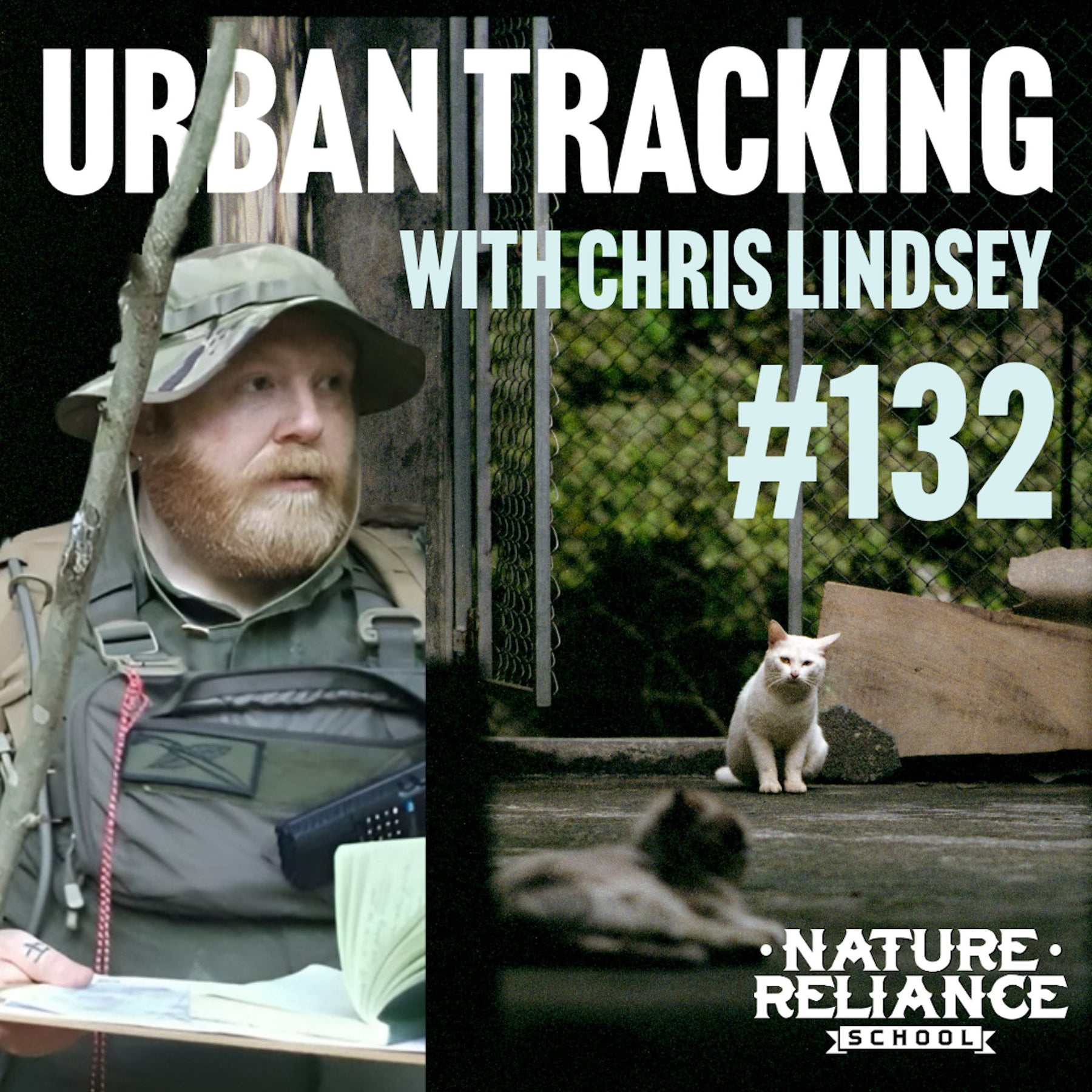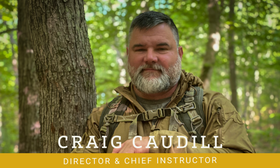
From Novice to Tracking Mentor: Chris Lindsey’s Urban Tracking Journey
Spotlight Vendor is KY Handcrafted, use code NRS10 for 10% off for January 2025
Summary
-
Chris Lindsey's Introduction and Early Tracking Experiences 0:03
-
Craig Caudill welcomes Chris Lindsey to the show and asks him to introduce himself and share his connection with Nature's Relentless Pursuit (NRP).
-
Chris Lindsey explains that he started tracking around 2012 as a hobby and initially bought a Tom Brown book to learn animal tracking.
-
Chris mentions that he eventually found NRP and took scout classes, which significantly advanced his tracking skills.
-
Craig recalls that Chris's first class with him was a tactical survival class, where Chris had no experience and brought a heavy camping setup.
-
-
Challenges and Learning in Tactical Survival 1:39
-
Chris describes his first tactical survival class experience, where he brought a 50-pound tent and struggled with the physical demands of the class.
-
Craig humorously notes that Chris looked like a Sherpa carrying gear, and Chris admits that he had never slept outside before.
-
Chris explains how his gear and approach to camping have evolved over the years, now carrying minimalist camping equipment.
-
Craig and Chris discuss the importance of adapting to outdoor conditions and the value of experience in tracking and survival skills.
-
-
Tracking in Urban Areas: Louisville, Kentucky 5:29
-
Craig asks Chris about his experiences tracking in an urban area like Louisville, Kentucky.
-
Chris explains that tracking in urban areas involves applying the same principles as tracking in the woods, focusing on cutting for sign and observing animal behavior.
-
Chris describes how he uses motion sensor lights and other environmental cues to track animals in the city, noting that animals are more active at night.
-
Chris shares his method of using track traps and mental notes to track animals in urban environments, comparing it to tracking in nature preserves.
-
-
Adapting to Urban and Rural Tracking 56:43
-
Craig inquires about the differences between urban and rural tracking, asking Chris to explain his thought process and approach.
-
Chris explains that his initial panic in urban tracking has subsided as he gained experience and realized that tracking is a continuous process.
-
Chris emphasizes that urban tracking can be easier due to fewer pathways and more defined areas for animals to move through.
-
Chris shares his strategy of cutting for sign in urban areas, using various environmental cues and vegetation to track animals.
-
-
Challenges and Learning in Tracking 57:18
-
Craig asks Chris about any frustrations or challenges he faced in tracking and how he overcame them.
-
Chris explains that his initial challenge was the lack of animals in his urban environment, leading him to track in parks and other areas with more wildlife.
-
Chris describes how studying tracks in parks helped him recognize and understand different animal tracks, which he could then apply to urban tracking.
-
Chris emphasizes the importance of gaining experience and observing wildlife to develop tracking skills.
-
-
Tracking as a Skill and Lifestyle 57:32
-
Craig and Chris discuss the importance of tracking as a skill and how it can enhance other outdoor and survival skills.
-
Chris shares his approach to tracking, including using minimalist gear, understanding animal behavior, and leaving no trace.
-
Chris explains how tracking has become a lifestyle for him, allowing him to enjoy and understand the natural world around him.
-
Chris emphasizes that tracking is a continuous learning process and that gaining experience is crucial for developing skills.
-
-
Books and Resources for Tracking 57:46
-
Craig asks Chris about any books or resources that have been helpful in his tracking journey.
-
Chris recommends several books, including "Combat Tracking Guide," "Tactical Tracking Operations," and "Practical Tracking Guide" by Mark Elbrock.
-
Chris mentions that Tom Brown's books were also helpful and that reading multiple books can provide a comprehensive understanding of tracking.
-
Chris emphasizes that while books are useful, practical experience and observation are essential for developing tracking skills.
-
-
Stories and Experiences from Private Security Work 1:06:20
-
Craig asks Chris about the stories he often shares at the campfire, leading Chris to recount his experiences working private security for Prince and the Mini Kiss cover band.
-
Chris describes his first high-paying gig working for Prince, where he was instructed not to look Prince in the eye and the challenges of maintaining security.
-
Chris shares his experiences with the Mini Kiss cover band, including dealing with their wild behavior and managing fights among band members.
-
Chris humorously recounts the chaos and excitement of working with these unique and unpredictable clients.
-

